In a radical departure, the latest cinema adaptation of Alfred Döblin's great Weimar-era novel updates the story with an African refugee as the protagonist.
In Alfred Döblin's 1929 novel Berlin Alexanderplatz, Franz Biberkopf, a working class petty criminal, emerges from Tegel prison into an unforgiving big city. Fast-forward 90 years, and Francis, as the protagonist in this second film adaptation is called, is from Guinea-Bissau and has barely survived the sinking of a refugee boat in the Mediterranean before making his way to Berlin.
Despite these differing circumstances, both want to start a new life in the German capital. Both long for work, normality, love. As German-Afghani filmmaker Burhan Qurbani said of the novel's key theme when his film adaptation premiered at the Berlinale this year: "His message of human dignity, that we dare to demand a decent life ... was translated into our film.
Contemporary relevance
Now being released late due to the coronavirus pandemic, the film is an epic, contemporary take on the Weimar-era novel with a three-hour running time — unlike the first film adaptation in 1931 that ran just under 90 minutes. Rainer Werner Fassbinder's multipart television version of 1980 was also more in keeping with its literary namesake, reprising the key motifs, themes and plots and delving deeper into the historical context.
Read more: German Expressionist cinema revival at the Berlinale
Burhan Qurbani's bold adaptation will likely connect with audiences because for the first time, it is set in the here and now. The protagonist a victim of the contemporary refugee crisis, Berlin Alexanderplatz addresses one of the fundamental issues of our time as Francis flees from West Africa to Europe and winds up in Berlin without asylum papers.
-
The influential Rainer Werner Fassbinder
Early death of a cinema great
Fassbinder is one of the most important film directors of Germany's post-WWII era. He died in 1982 at age 37, yet in his short life span he made 44 movies. While influenced by his predecessors, his films were unique, earning him a place in international cinematic history and influencing a subsequent generation of directors around the world.
-
The influential Rainer Werner Fassbinder
Inspired by Douglas Sirk
Fassbinder's most important role model was director Detlef Sierck, who was born in Germany in 1897. In 1937 Sierck released "To New Shores" and "La Habanera," featuring star actress Zarah Leander. He was forced to flee Nazi Germany the same year, as his wife was Jewish. After settling in Hollywood, he took on the name Douglas Sirk and made melodramas such as "Magnificent Obsession" (photo, 1954).
-
The influential Rainer Werner Fassbinder
Douglas Sirk: The master of the melodrama
In the winter of 1970-71, Fassbinder visited his role model in Ascona, southern Switzerland, where Sirk was living at the time. Fassbinder once said in an interview that Sirk's melodramas, such as "All that Heaven Allows" (1955), made him believe that Sirk loved people and never caricatured them. Fassbinder also once said Sirk made films "that were just as I would have made them myself."
-
The influential Rainer Werner Fassbinder
Following in Fassbinder's footsteps: Pedro Almodovar
Just as Fassbinder incorporated elements from Sirk's work into his own, European directors, such as Pedro Almodovar, later drew on Fassbinder's style. The Spaniard discovered Fassbinder's films as a young adult in Madrid and was fascinated by them, particularly by how the characters the actors defied typecasting. Above, a scene from Almodovar's "Labyrinth of Passion" (1982).
-
The influential Rainer Werner Fassbinder
Almodovar: A mess of emotions
Almodovar's early films particularly recall Fassbinder's. Strong and hyperactive women, men trapped between masculine expectations and hidden sensitivity — this can be found in both directors' work. Homosexuality and tension between the sexes are also reoccurring themes. They are often portrayed in an exaggerated and loud manner, but also always with humanity. Shown above: "Kika," from 1993.
-
The influential Rainer Werner Fassbinder
Feelings in full bloom: Francois Ozon
Fassbinder's biggest fan in the French-speaking world was Francois Ozon. Particularly the French director's early work contained visual and thematic parallels. Works such as "Sitcom" (1998) and "Water Drops on Burning Rocks" (2000; above), which is based on a play by Fassbinder, recalled the German director's films through its use of aesthetics and character selection.
-
The influential Rainer Werner Fassbinder
More strong women with Ozon
Ozon's 2002 film, "8 Women," also took inspiration from Fassbinder in its female protagonists; they are strong, energetic women who make diva-like appearances and display capricious behavior. All the characters are different, but one thing unites them: pure emotion, sometimes showed openly and other times hidden behind mask-like demeanor.
-
The influential Rainer Werner Fassbinder
Fassbinder's Hollywood trail: Todd Haynes
In the US, film students quickly became familiar with Fassbinder's work, thanks to its early presence in arthouse cinemas. When looking for traces of his influence, director Todd Haynes stands out. He is yet another a fan of the German director, and his female characters often recall Fassbinder's. Above, a scene from the melodrama "Carol" (2015), starring Rooney Mara (l) and Cate Blanchett (r).
-
The influential Rainer Werner Fassbinder
An indirect influence: Michael Ballhaus and Martin Scorsese
The cameraman Michael Ballhaus (left) worked for Fassbinder for years and became renowned for his innovative cinematography. Then he went to the United States and became Martin Scorsese's director of photography. And so in a way, Fassbinder is also present in some Scorsese films.
-
The influential Rainer Werner Fassbinder
An imprint in Asia: Wong Kar-wai
In Asia, it is the Shanghai-born director Wong Kar-wai whose work most resembles Fassbinder's. Known for his beautiful shots (above, "In the Mood for Love," 2000), Wong once said that he most admired how Fassbinder directed his female actors: "They are strong women, and he constantly wrapped them in melodramatic events. "
-
The influential Rainer Werner Fassbinder
Fassbinder fan Bong Joon-ho
Bong Joon-ho, the Korean filmmaker best known for his Golden Palm and Oscar-winning film "Parasite," told German newspaper "SZ" that he too was an admirer of the German director. "Lack, lust and greed influence people and families," he said, adding that Fassbinder had mastered the art of portraying these human traits.
-
The influential Rainer Werner Fassbinder
Back to Germany: Fatih Akin
And in Fassbinder's home country directors were also influenced by his work. For example, Fatih Akin cast Hannah Schygulla in the lead role of his film "The Edge of Heaven" (2007); the actress had starred in several Fassbinder films. At the film's premiere, she said that Akin "reminded me of the young Fassbinder" and that she had been impressed by "this wildness, this naivete."
-
The influential Rainer Werner Fassbinder
Akin's magnetic field of emotions
Powerful, full of wild emotions: Fassbinder and Akin's films have much in common. They also share certain themes. Akin, who was born in Hamburg to Turkish parents, often places cultural conflict at the center of his films, such as in "In the Fade" (2017, picture). Fassbinder's 1974 movie "Ali: Fear Eats the Soul" was one of the first films to address cultural tensions.
-
The influential Rainer Werner Fassbinder
Fassbinder's double: Oskar Roehler
However, many experts consider a different German director to most reflect Fassbinder: Oskar Roehler. His films bubble over with emotion, sometimes even to an extreme. Characters and dramatic arcs are sometimes overexaggerated or affected. And yet the films present emotional universes that span Germany, as was also the case in Fassbinder's work.
-
The influential Rainer Werner Fassbinder
Men in leather: 'Punk Berlin 1982'
Fassbinder's favorite accessory was the leather jacket. But that's not the young director above; it's the actor Frederick Lau in Roehler's film "Punk Berlin 1982" (2015). The characters in Roehler's films can be imagined as part of Fassbinder's subcultural scene. The movie exudes raw artistry and Fassbinder-esque charm.
-
The influential Rainer Werner Fassbinder
Fassbinder portrayed in 'Enfant Terrible'
It's no coincidence that Oskar Roehler has made a film based on episodes from Fassbinder's life, which will be released in Germany on May 28. The film, "Enfant Terrible," stars Oliver Masucci as the German director and focuses on Fassbinder's early years.
Author: Jochen Kürten (cmb)
Retaining the core structure
As a stateless person with no work permit, Francis is treated with the same contempt as Franz Biberkopf in Döblin's novel. After he declines an offer to deal drugs in a city park, he is drawn into the world of the criminal Reinhold, a sex addict who tries to corrupt the newcomer.
But after Francis meets Eva, a club owner, he falls into a love affair with a young escort named Mieze. In this, the basic structure of Qurbani's film follows the three-act original story. What differs are time, characters, and the milieus they move in.
In an interview with the German Press Agency, Qurbani said the focus was ultimately on the individual: "I think that the book wants to tell us something about people. The book is interested in people and how they move in this juggernaut metropolis."
It is an issue that relevant to Berlin today. "Our film is limited above all to the actual plot: the love triangle, this ménage-à-trois between Franz, Mieze and Reinhold. How they meet, drag on each other. And how Franz Biberkopf must find himself."

An exile in contemporary Berlin finds rare comfort in the demi-monde
Qurbani: 'Berlin was a dangerous city for me'
According to the director, the story's setting has not changed significantly: "Berlin has lost none of the quality it had in the 1920s or 1930s. We tried to translate that into our film as much as possible."
Reading the book carefully, one recognizes a lot in the filming, Qurbani says. It retains the form and aesthetics of the modernist masterience: "What totally fascinated me was the form of the novel. The montage technique, the wild language Döblin uses, the religious and moral images he builds up."
Burhan Qurbani was born in West Germany — in Erkelenz in North Rhine-Westphalia — after his parents emigrated from Afghanistan in the late 1970s. He moved to Berlin as a teenager.
Even though Qurbani's life path cannot be compared with that of his main character Francis, his own experiences have been incorporated into the screenplay, which he wrote himself.
"The Berlin I came to was an incredibly dangerous city because there are so many ways to distract oneself and lose oneself," the director said.
Also confronted with a completely different world, Francis is vulnerable, pulled into a journey described as the "dark night of the soul." But because he demands his dignity, his "right to a decent life," he is determined to make a leap of faith into this new alien culture.
-
70th Berlinale: Winners of the Golden and Silver Bears
Golden Bear for best film: 'There Is No Evil'
Iranian director Mohammad Rasoulof's anthology film brings together four short stories dealing with individual freedom and the death penalty. Acts of resistance in the film reflect Rasoulof's own decision to defy Iran's authorities, who've banned him from filmmaking, confiscated his passport and sentenced him to prison. The powerful work is crowned with the Berlinale's top award, the Golden Bear.
-
70th Berlinale: Winners of the Golden and Silver Bears
Grand jury prize: 'Never Rarely Sometimes Always'
Eliza Hittman directed a brilliant portrait of two teens from rural Pennsylvania who travel to New York City to seek out medical help to end an unplanned pregnancy. In the role of Autumn, Sidney Flanigan (photo) displays a range of understated emotions. The hard-hitting abortion drama wins the Silver Bear Grand Jury Prize.
-
70th Berlinale: Winners of the Golden and Silver Bears
Best director: Hong Sangsoo, 'The Woman Who Ran'
Alongside Bong Joon-ho of "Parasite" fame, Hong Sangsoo is one of the most revered filmmakers of South Korea. In the director's minimalist style characterized by lots of dialogue and zooms, "The Woman Who Ran" is a sensitive and humorous study of a woman's journey of self-discovery as she encounters three friends.
-
70th Berlinale: Winners of the Golden and Silver Bears
Best actress: Paula Beer in 'Undine'
According to a German myth that's influenced countless works, Undine is a mesmerizing water spirit. This translates into wondrous aquatic scenes in Christian Petzold's film. Portrayed by Paula Beer, the title character is the most informative museum guide in Berlin, but also a dangerous woman to fall in love with... Beer's ghostly performance is definitely worthy of a Silver Bear.
-
70th Berlinale: Winners of the Golden and Silver Bears
Best actor: Elio Germano in 'Hidden Away'
Italian painter Antonio Ligabue was one the most important naive artists of the 20th century. The film "Hidden Away" portrays the man's difficult life affected by mental illness. Elio Germano is completely transformed in this very physical role, earning him the Silver Bear for best actor.
-
70th Berlinale: Winners of the Golden and Silver Bears
Best screenplay: 'Bad Tales'
Recognized with a Silver Bear for their screenplay, brothers Fabio and Damiano D'Innocenzo were also the directors of this dark and unnerving fairy tale set in a sterile residential estate in the suburbs of Rome. Incidentally, actor Elio Germano also stars in this other prize-worthy film from Italy.
-
70th Berlinale: Winners of the Golden and Silver Bears
Outstanding Artistic Contribution: Cameraman Jürgen Jürges
The controversial production of Ilya Khrzhanovsky's "DAU. Natasha" has made many headlines. German cinematographer Jürgen Jürges, legendary for his work with Rainer Werner Fassbinder, also had to deal with his own set of challenges for the epic project, filming in a semi-documentary style with a single camera as the film's participants "lived their lives." The jury recognized his exceptional work.
-
70th Berlinale: Winners of the Golden and Silver Bears
Special 70th Berlinale award: 'Delete History'
Many films competing at the Berlin film fest were dark, but this satire by French directors Benoît Delépine and Gustave Kervern was absolutely hilarious. Portraying three friends who decide to fight against tech giants, "Delete History" comments on the absurdities of the digital age. The film was recognized with a special Silver Bear for the 70th anniversary of the Berlinale.
-
70th Berlinale: Winners of the Golden and Silver Bears
Best Berlinale documentary: 'Irradiated'
The Berlinale Documentary Award goes to Cambodian documentary film director Rithy Panh, whose work "Irradiated" was featured in the competition section. The meditative essay against historical forgetting mainly features a montage of archival footage of war in the 20th century.
Author: Elizabeth Grenier
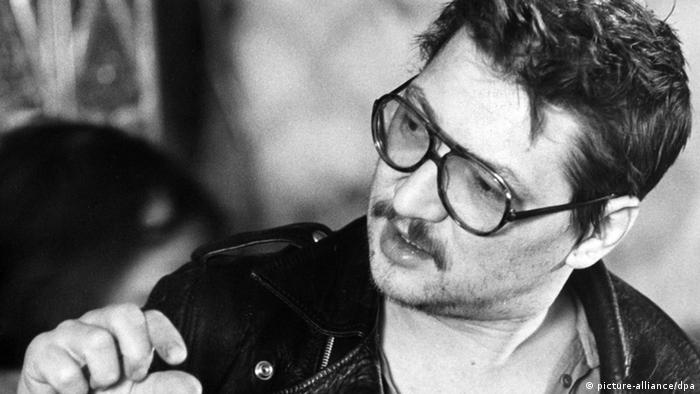
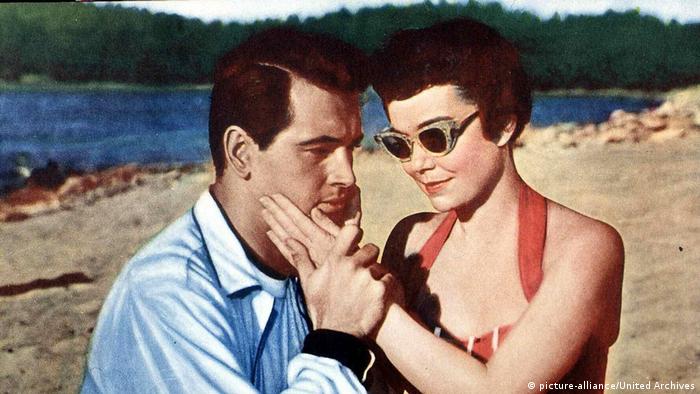

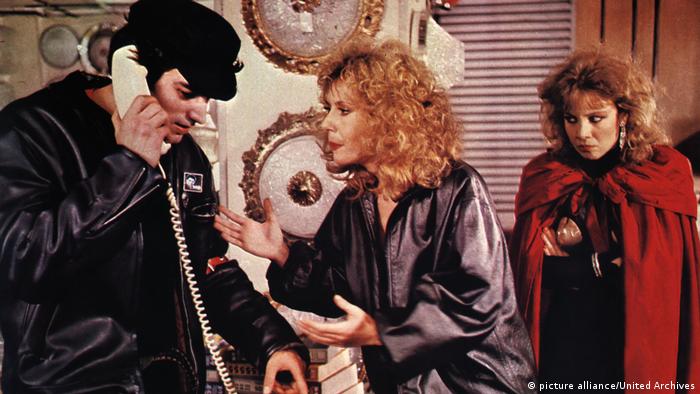
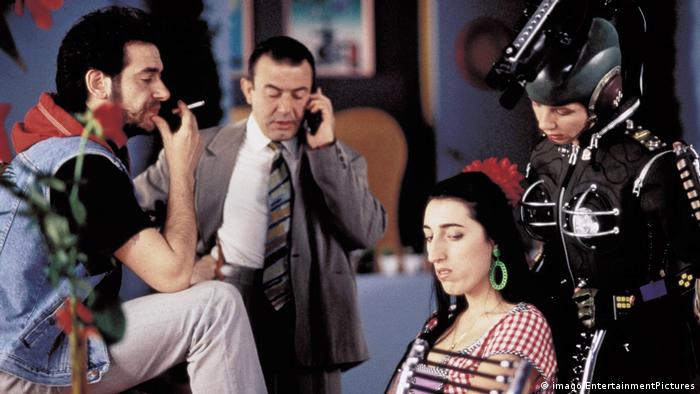
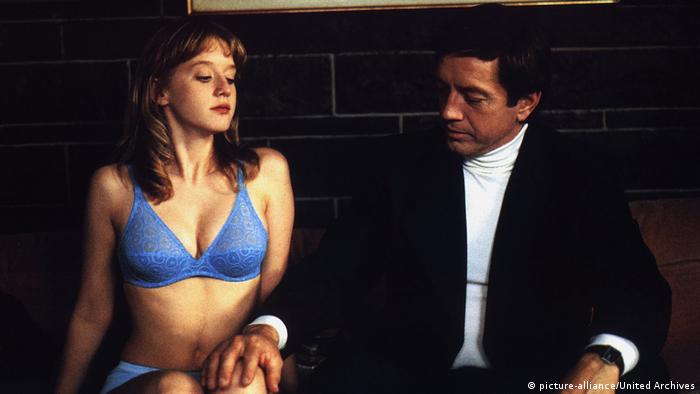
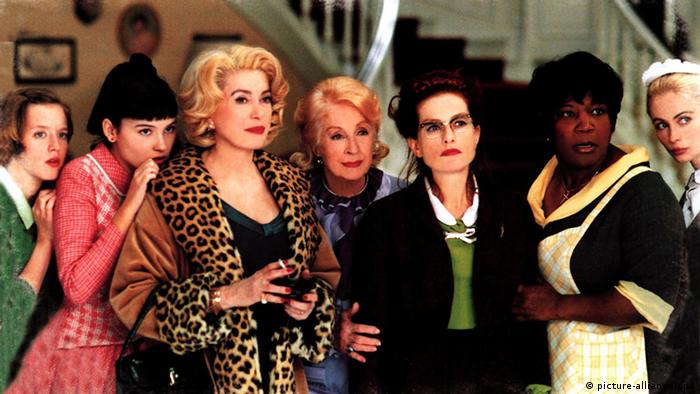
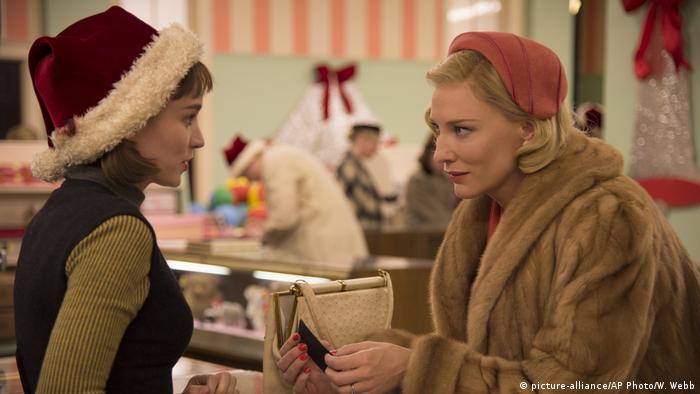
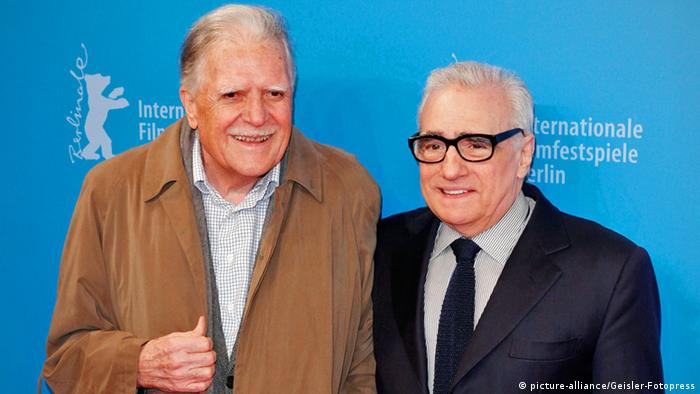
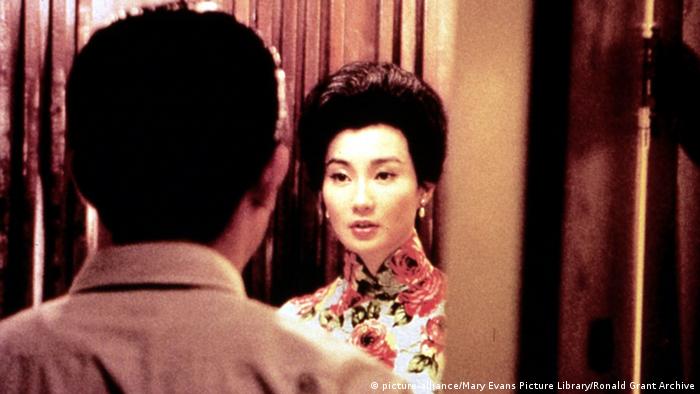
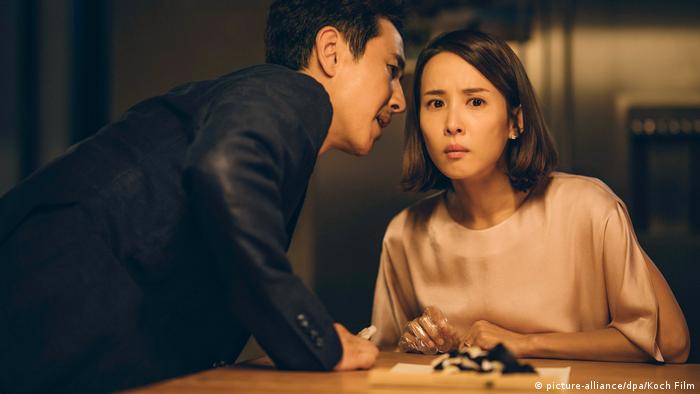
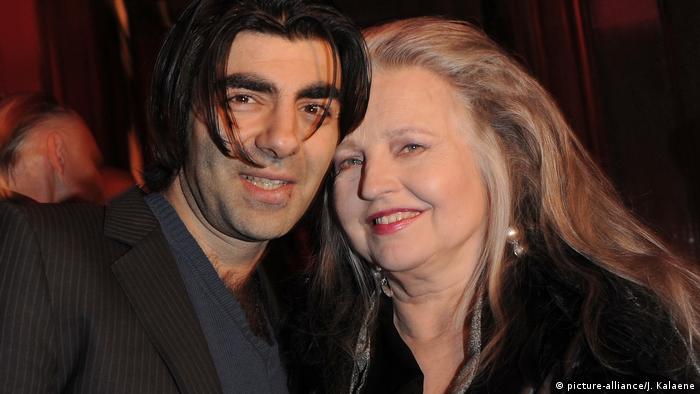
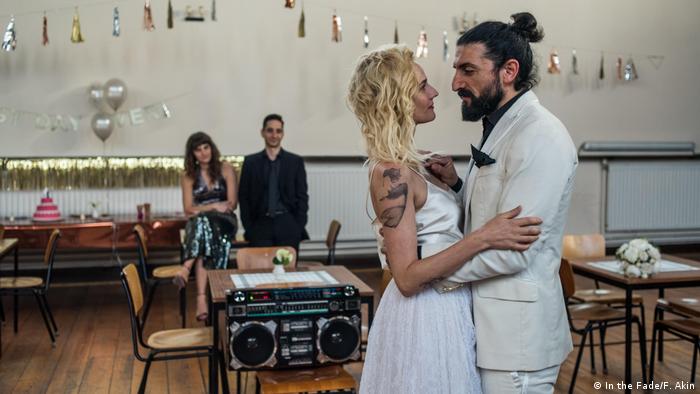
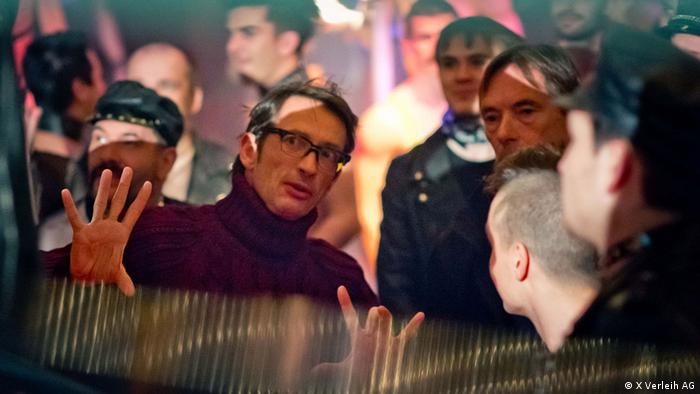
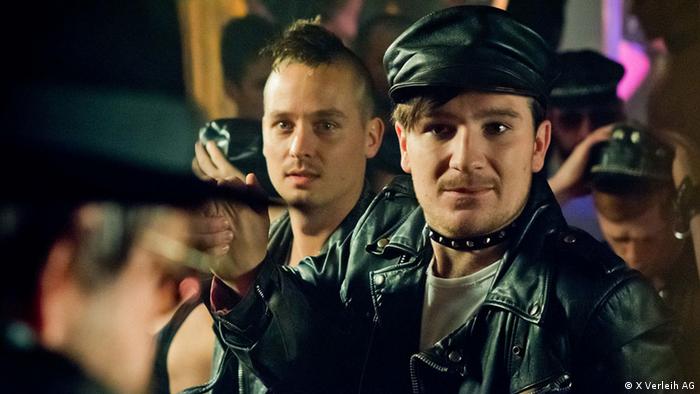
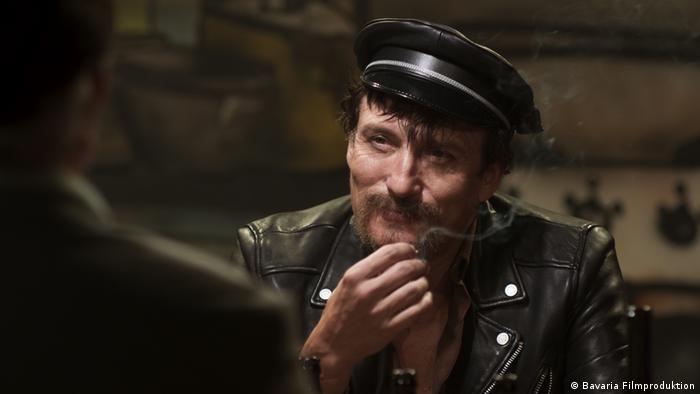
























0 Response to "'Berlin Alexanderplatz': updated and adapted into film - DW (English)"
Post a Comment